Introducing Our 2024-25 CISAC Honors Students
Introducing Our 2024-25 CISAC Honors Students
We are thrilled to welcome thirteen outstanding students, who together represent thirteen different majors and minors, to our Honors Program in International Security Studies.
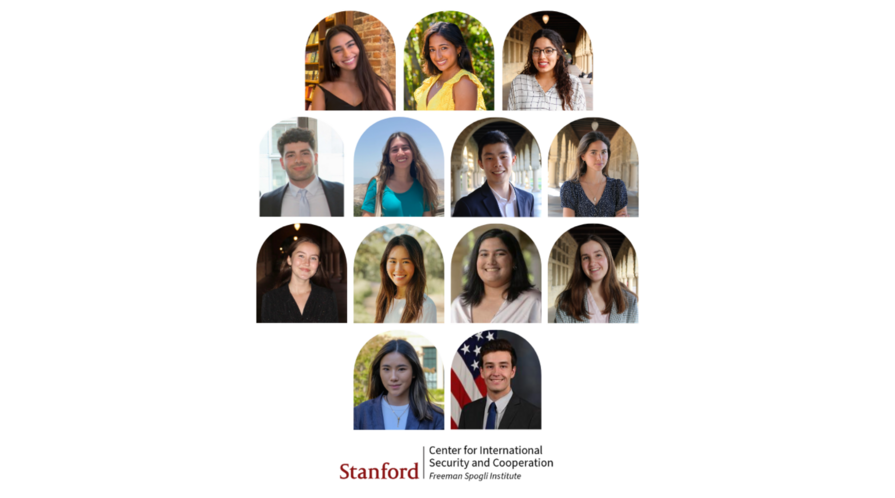
The CISAC Interschool Honors Program in International Security Studies provides an opportunity for seniors from all undergraduate schools and majors who have strong academic records and interest in international security to receive Honors in International Security Studies. Students are admitted to the program on a competitive basis during winter quarter of junior year. The award of Honors is in addition to the student's major, which may be in any department or program. The CISAC Honors Program has drawn students from 28 different major departments and programs since its inception in 2000 and has an alumni network of over 200 former students.
We are thrilled to welcome eleven outstanding students to the class of 2024-25!
Meet the Students

Emma Barrosa
Major: International Relations
Minor: Data Science
Hometown: Glendora, CA
Thesis Advisor: Jacquelyn Schneider and James Fearon
Tentative Thesis Title: Classification in Wargaming: The Behavioral Analysis of Players
Why is this topic important to the field of international security? Since the late 1800s, wargames have trained and educated America’s most important decision-makers for real-world crises. Despite their importance, few studies have explored how particular game designs and environments impact participants' decision-making. My thesis explores this phenomenon, ultimately improving the effectiveness of these training tools.
What attracted you to the CISAC undergraduate honors program? The CISAC Honors Program offers invaluable research opportunities to connect with leading scholars and produce original research with future policy implications. As an international relations student, CISAC will strengthen my research skills while allowing me to study a subject relevant to international security.
Future aspirations post-Stanford: I hope to attend graduate school and then kickstart my career in defense where I can apply my international relations background to relevant security challenges.
A fun fact about yourself: I love to oil paint!
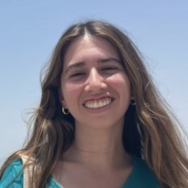
Nicole Benalcázar-Pavlik
Major: International Relations
Minor: Human Rights
Hometown: Los Altos Hills, CA
Thesis Advisor: David Cohen
Tentative Thesis Title: International vs. Hybrid Tribunals: Effects on Restorative Justice and Reconciliation
Why is this topic important to the field of international security? Just this past year, the ICC and ICJ have taken steps to address crimes committed in places like Gaza, Ukraine, and Sudan. Given that these types of conflicts will continue to ravage various parts of the world, statesmen and citizens will need to ascertain the most effective path towards justice. My research aims to determine which tribunal format -- international or hybrid -- has proven itself most effective in bringing forth justice and reconciliation.
What attracted you to the CISAC undergraduate honors program? The CISAC honors program will give me an opportunity to rigorously study an original research topic under the guidance of faculty who are experts in the security field. I also appreciate the program's interdisciplinary nature, and I look forward to learning from my peers who come from a range of academic backgrounds. I know I will leave the program with a better understanding of the breadth and depth of international security in today's world.
Future aspirations post-Stanford: I am considering attending law school at some point after graduation. Whether or not I choose this path, I plan on pursuing my interests in international criminal law, international humanitarian law, and transitional justice.
A fun fact about yourself: I love to travel and learn languages!

Isabel Cai
Major: Political Science & East Asian Studies
Hometown: Shanghai, China
Thesis Advisor: Michael R. Tomz
Tentative Thesis Title: "Wolf Warriors": How Does China Communicate to Foreign Audience in Times of Crisis
Why is this topic important to the field of international security? Scholars have widely studied how governments, both authoritarian and democratic, utilize domestic public opinion to signal resolve in interstate conflicts and crises. There is another strand of research on how authoritarian regimes influence foreign public opinion through public diplomacy programs and information campaigns. I wonder if a connection can be made between the two. For instance, what, how, and why does the Chinese state media communicate to the international audience in times of tension, such as Pelosi's visit to Taiwan? Understanding this puzzle will not only bridge a gap in academic literature but also allow us to become more cognizant of the information environment today.
What attracted you to the CISAC undergraduate honors program? I am excited to further my research agenda under the CISAC honors program. The program’s focus on interdisciplinarity makes it a good fit for my research, which would involve both qualitative and quantitative methods and lies at the intersection of comparative politics and international relations. I believe that the rigorous academic writing and critiquing process will prepare me for graduate studies. It is rare to find such an opportunity as an undergraduate.
Future aspirations post-Stanford: I plan to pursue graduate education after Stanford. Broadly speaking, my research interest is in how domestic politics interact with states' behavior internationally, with a regional focus on China. In the future, I hope to work in academia and become involved in track II diplomacy.
A fun fact about yourself: I have been painting/drawing/making art for 15 years. Now my interest is shifting to the art business world and I want to build my own art collection someday.

Sophie Donnellan
Major: International Relations
Minor: French
Hometown: Chicago, IL
Thesis Advisor: Kenneth Schultz
Tentative Thesis Title: Securitization of Climate Migration
Why is this topic important to the field of international security? By analyzing global rhetoric on climate migration, I seek to understand the extent to which it is securitized as a topic in international institutions like the United Nations. Securitization theory argues that actors can intentionally securitize topics in an effort to prioritize issues as a part of the global security agenda, but this is not always conducive to solving the issues, and has proven to be detrimental in certain cases. Through my research, I hope to better understand how modern securitization impacts our global response to international challenges, shed light on the institutional agendas of states affected by climate migration, and inform policy on climate migration and immobility.
What attracted you to the CISAC undergraduate honors program? I was drawn to CISAC primarily because of the opportunity it presented to research a topic at the intersection of my interests in climate policy and international security. In addition, I appreciated its unique focus on the applicability of academic honors theses to real policies, as I hope to go into international climate policy work following Stanford. I am also excited that CISAC prioritizes connecting students with experts on international security, both within CISAC faculty and through the Honors College in Washington, DC.
Future aspirations post-Stanford: Through a career in climate diplomacy, I intend to be part of the solution to climate change and environmental issues by implementing scientific research into policy and using clear communication to overcome global climate challenges.
A fun fact about yourself: I play three traditional Irish instruments: Irish flute, tin whistle, and Bodhrán.

Divya Ganesan
Major: Political Science
Minor: Computer Science
Hometown: Palo Alto, CA
Thesis Advisor: Zakir Durumeric
Tentative Thesis Title: Secure by Design or Enforcement: Understanding American Artificial Intelligence Company tradeoffs between Security and Innovation
Why is this topic important to the field of international security? The future of warfare and security is inherently tied to the internet. While at the NSA and the Cyber and Infrastructure Security Agency, I started to think about how we could approach global internet security differently: what if we saw security not as an afterthought to the products we create (in places like silicon valley) but inherent to its value. My thesis is an effort to contribute to a more secure and effective information ecosystem amidst emerging technologies to ensure a healthy and long-lasting democracy.
What attracted you to the CISAC undergraduate honors program? I am so excited to challenge myself in doing long-term research among my talented CISAC honors peers and mentors. CISAC provides a unique opportunity to not only produce original research but go deeper into my intersecting interests in cybersecurity, defense and technology.
Future aspirations post-Stanford: Post-Stanford my dream job would be to work as a policy advisor at the White House of the Office of the National Cyber Director or the National Security Council.
A fun fact about yourself: My side hobby (for bravery building purposes) is stand up comedy!

Zhenwei Gao
Major: International Relations
Minor: Technology and Ethics
Hometown: Southern California and China
Thesis Advisor: Rose Gottemoeller and Herb Lin
Tentative Thesis Title: International Cyber Governance: Unraveling the Geopolitical Dynamics and Negotiating Consensus at the 2013 UN Group of Governmental Experts (GGE) Summit
Why is this topic important to the field of international security? Emerging technologies will inevitably change the future of international security and cooperation. By examining a successful precedent for international cyber governance, I hope to provide better insights for policymakers to establish appropriate and agreeable norms and rules of law for future technologies amidst geopolitical tensions.
What attracted you to the CISAC undergraduate honors program? Brilliant and driven cohort and advisors! Relevant policy impact! And an amazing challenge to wrap up my senior year!
Future aspirations post-Stanford: To eventually play a part in bridging the divide between the U.S. and China, countries with significant technological prowess that will shape the future of technology innovation, development, and governance.
A fun fact about yourself: I did competitive speed skating for two years in elementary!
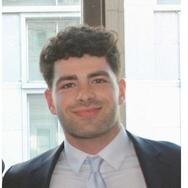
Josh Hechtman
Major: International Relations
Hometown: Spokane, WA
Thesis Advisor: Colin Kahl and Larry Diamond
Tentative Thesis Title: Examining Israeli-Arab Cooperation on Natural Resource Security
Why is this topic important to the field of international security? Natural Resource security – particularly water and energy – has been a critical component of Israeli-Arab peace negotiations. Joint water and energy cooperation was formally codified in the Oslo 1 Accords of 1993 and the Israel–Jordan Peace Treaty of 1994, for it was understood that these resources were a foundation for regional cooperation and vital to security and development. Today, as the Middle East experiences increased drought, severe environmental degradation, continued population growth, and poor governance, Israeli-Arab cooperation on natural resources is critical to economic development, national security, and future peace agreements. This research will shed light on the conditions that facilitate and hinder both top-down (intergovernmental) cooperation and bottom-up (through civil society organizations) cooperation. Importantly, the events on October 7th and the subsequent war in Gaza have not diminished any of the regional challenges concerning the climate crisis, environmental degradation, and natural resource security. The current conflict raises important questions about the willingness, ability, and resilience of civil society organizations (CSOs) and governments to cooperate – even on these “low politics” issues. Overall, this research will provide lessons for international and local players on the role of governments and civil society in enhancing security cooperation around natural resource security issues, deterring conflict, and promoting economic development – both in the Middle East and beyond.
What attracted you to the CISAC undergraduate honors program? I view the CISAC Honors Program as the culmination of individual research, significant coursework, and insights throughout my time at Stanford. Furthermore, the CISAC Honors Program facilitates the opportunity to engage with faculty that provide a breadth and depth of understanding in my research topic – one that combines my interdisciplinary interests in international relations, the Middle East, environmental security, sustainable development, governance, and technology. What excites me most, though, is the opportunity to surround myself with a cohort of students who are excited to transform an academic passion into an honors thesis. The CISAC Honors Program offers a structured community of scholars who care about improving and advancing the state of our world, who strive to find solutions to pressing questions, and who think critically about ideas and issues.
Future aspirations post-Stanford: I plan to work in the private sector or in government. In either case, it will relate to my interests in technology and national security.
A fun fact about yourself: I have somehow eaten the brain of three different species...
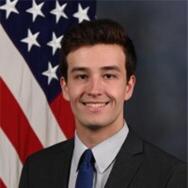
Michael Murray
Major: International Relations
Hometown: Lake Oswego, Oregon
Thesis Advisor: David Cohen and Herb Lin
Tentative Thesis Title: Assessing the implications of AI integration in U.S. military bombing operations
Why is this topic important to the field of international security? Today, due to increasingly sophisticated collection tools, the U.S. military is gathering more raw intelligence than it can effectively process. As a result, the military is leveraging artificial intelligence (AI) to accelerate data analysis, including in the target selection process for drone and artillery strikes. Specifically, the military is developing AI models capable of rapidly analyzing vast volumes of data - such as drone footage, satellite imagery and intercepted communications - in order to recommend targets to attack. I am interested in researching how the U.S. military can safely and effectively integrate AI into the target acquisition process in accordance with both national interests and international law.
What attracted you to the CISAC undergraduate honors program? I am drawn to the CISAC Honors program because it is the perfect opportunity for me to build upon the knowledge and passion that I have developed thus far through my coursework, research activities and professional experiences. The Honors program will allow me to explore in depth military applications of AI, a topic that genuinely excites me. Moreover, the Honors program will help me develop the skills that are essential for a future career in government, such as the abilities to gather and critically analyze data, argue complex arguments clearly and persuasively, and, of course, formulate viable policy solutions to a given problem. Finally, joining the CISAC Honors program means joining a community of similarly passionate, hardworking students who will greatly enrich my remaining time at Stanford. I firmly believe that I have just as much to learn from my fellow thesis writers as from my own research and my own advisors. I am so excited to grow alongside my peers over the course of the year and to constantly push one another to think differently and more deeply about the world we are about to inherit.
Future aspirations post-Stanford: After graduation, I plan to attend law school before pursuing a career in national security and defense policy.
A fun fact about yourself: I love the outdoors, especially backpacking the Pacific Crest Trail with friends and family during the summertime.

Isobel Porteous
Major: Aeronautics and Astronautics
Hometown: New York City
Thesis Advisor: Simone D'Amico
Tentative Thesis Title: Proximity detection of nuclear warheads in space
Why is this topic important to the field of international security? The Outer Space Treaty of 1967 bans nuclear weapons in space and is still the most significant international law governing outer space. The peaceful use of outer space is critical to modern human life around the world, and nuclear weapons or other threats in the space domain jeopardize international security. In June 2024, the U.S. Department of Defense warned that Russia may be developing a program to place a nuclear weapon in space. For my senior CISAC thesis, I will simulate a spacecraft rendezvous mission capable of detecting nuclear materials in space before detonation. Such a simulation would demonstrate a novel means of tracking compliance with this critical international law to protect satellites and the space environment.
What attracted you to the CISAC undergraduate honors program? I admire the history of CISAC as a leader in arms control strategy and wanted the chance to work under the faculty here that have made such valuable contributions to international security. The interdisciplinary nature of the program is also a huge draw for me. Our cohort is composed of brilliant students who have already taught me so much. The breadth and depth of their thesis topics suits the diversity of fields implicated in international security studies.
Future aspirations post-Stanford: After Stanford, I hope to develop the simulation detailed in my thesis into a real-world spacecraft mission.
A fun fact about yourself: I named my car (my “Ride”) after Stanford alum and first American woman in space, Sally Ride.

Samiya Rana
Major: History
Minor: African Studies, Spanish
Hometown: San Diego, CA
Thesis Advisor: Gil-li Vardi
Tentative Thesis Title: South Africa's Nuclear Weapons Program
Why is this topic important to the field of international security? Given that South Africa's nuclear weapons program was initiated during the apartheid regime, it provides unique insight into the overlay of settler colonialism, racial hierarchy, and nuclear weapons production.
What attracted you to the CISAC undergraduate honors program? I was drawn to the CISAC program because of its interdisciplinary approach to humanity's most pressing security concerns. Its commitment to diversity, both among students, their interests, and their world views, fosters novel research and exciting exploration that has the potential to contribute to a more just, unified world
Future aspirations post-Stanford: Post-Stanford I hope to enter the realm of public policy or law with a focus on issues of racial justice both in America and the African continent
A fun fact about yourself: In my free time I love writing poetry and acting!

Gabriela Reitz
Major: International Relations
Hometown: Grand Junction, Colorado
Thesis Advisor: Kathryn Stoner and Harold Trinkunas
Tentative Thesis Title: Brazil's Foreign Policy: Non-Aggression, Non-Alignment, and the War in Ukraine
Why is this topic important to the field of international security? This research is important for many reasons. Most immediately, the war in Ukraine has had widespread consequences for the world as a whole, leaving scars on the economy, impacting trade, and compromising food security. Understanding Brazil’s stance on the crisis could help clarify why Ukraine has not received unanimous support worldwide. Moreover, an analysis of Brazil’s security approach is important because the country plays a key role on the global stage. Brazil is the seventh largest country in terms of population and is a regional leader in Latin America, suggesting that its influence is pervasive. Regarding international security, Brazil is a current member of the UN Security Council, meaning that it has a direct impact on how global security decisions are made. Ultimately, the topic of this thesis is relevant because it directly relates to the political and security issues that shape the world we live in.
What attracted you to the CISAC undergraduate honors program? I was attracted to the CISAC undergraduate honors program because of its holistic nature. By combining research, peer interaction, and exposure to policy-making, I know I will have a comprehensive learning experience, enhancing my academic growth and supporting my career aspirations in international security.
Future aspirations post-Stanford: I hope that my future career will fuse my interest in security with my passion for politics and foreign policy. Specifically, I would love to work between the United States and Brazil, my second country of citizenship. Beyond a job, I'm excited to keep learning by reading lots of books and talking to interesting people.
A fun fact about yourself: I'm from Colorado and love hiking 14ers, mountains that are 14000+ feet in elevation. Mountains over beach, any day!

Raina Talwar Bhatia
Major: Bioengineering & International Relations
Hometown: Mumbai, India
Thesis Advisor: Drew Endy
Tentative Thesis Title: Enhancing Research Laboratory Biosafety in India
Why is this topic important to the field of international security? Given India's large population and the concentration of research laboratories in metropolitan centers, an accidental pathogen leak could precipitate national and international public health crises. Therefore, comprehending the current practices in Indian research laboratories and devising methods to ensure safe and secure research is critical for both the Indian government and the broader international community.
What attracted you to the CISAC undergraduate honors program? The CISAC undergraduate honors program gives me an incredible opportunity to pursue my interdisciplinary interests, utilize my international background to provide a perspective on a topic I am deeply passionate about, and interact with a community of like-minded individuals who are equally passionate about issues in international security. It is truly an unparalleled program and one that I have wanted to participate in since my freshman year at Stanford.
Future aspirations post-Stanford: I hope to work in biosecurity & emerging technology policy to improve public health systems and pandemic resilience plans globally.
A fun fact about yourself: In high school, I used to play the drums in a band with my friends!
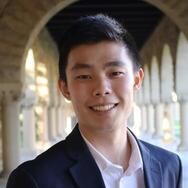
Noah Tan
Major: International Relations
Minor: Music Composition
Hometown: Stevensville, MI
Thesis Advisor: Frank Fukuyama
Tentative Thesis Title: The New China Shock: Evaluating the Security Implications of Chinese Trade with Dependent and Emerging Markets
Why is this topic important to the field of international security? Studying economic security is critically important to the field of international security and cooperation, as it is the primary medium that adversarial actions unfold below the line of armed conflict. China's expanding trade relationships with dependent and emerging markets not only influence global geopolitical dynamics by creating economic dependencies and potentially parasitic relationships in new markets, but also raise national security concerns related to critical infrastructure and technology transfers. Moreover, these trade patterns affect global economic stability and the security of international supply chains, necessitating a thorough assessment of vulnerabilities and risks. With China's increasing reliance on exporting its capital surpluses to support its domestic economic shortfalls, understanding these implications is essential for fostering effective international cooperation, managing potential conflicts, and developing resilient strategies against economic and security challenges in an interconnected global environment.
What attracted you to the CISAC undergraduate honors program? I was attracted to the CISAC Undergraduate Honors Program because of its exceptional networking and mentorship opportunities in the field of international security. The CISAC Honors Program not only offers access to esteemed scholars and practitioners but also provides unique exposure to influential figures in Washington D.C., such as generals, journalists, congresspeople, and think tank scholars. These interactions will offer invaluable insights and diverse perspectives crucial for shaping my honors thesis on contemporary international security issues. Furthermore, CISAC's extensive alumni network, comprising leaders across government, NGOs, the legal field, and the private sector, presents an unparalleled opportunity for mentorship and guidance as I pursue a career in international trade law. This mentorship, combined with the program's emphasis on practical engagement and real-world impact, makes the CISAC undergraduate honors program an unparalleled platform to advance my academic and professional goals in international security research and policy analysis.
Future aspirations post-Stanford: Post-Stanford, my goal is to attend law school and pursue a career as an international trade lawyer, ideally working within agencies like the U.S. Trade Representative (USTR), Securities and Exchange Commission (SEC), or the Treasury Department. Building on my research experiences at CISAC, I aim to specialize in global trade law and policy, leveraging insights gained from interactions with policymakers, practitioners, and CISAC mentors to promote economic security and financial stability.
A fun fact about yourself: I am a music composer and like to write pieces for orchestra and wind ensemble!
